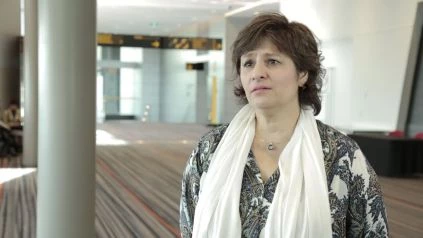Sharon Liberali, BDS (Adel), DClinDent (FICD, FPFA, FRACDS) of Adelaide Dental Hospital, Adelaide, Australia, emphasizes the importance of the treatment planning process for the dentist, in order for them to analyze and project which teeth are at risk of osteonecrosis of the jaw (ONJ). Bisphosphonates have a strong affinity for the bone, even if patients have stopped taking the medication for quite some time. The bone remembers these drugs in the system, therefore the risk of ONJ is almost lifelong for these patients. Dr. Liberali mentions that dentists have a clinical responsibility for a soft tissue examination, as well as teeth examination in order to search for and identify spontaneous osteonecrosis of the jaw. Dentists sometimes have to perform extractions, of which there is a protocol to follow in order to implement that safely for patients that have had either bisphosphonates or the autologous stem cell transplant. Recorded at the Multinational Association of Supportive Care in Cancer (MASCC) and International Society of Ocular Oncology (ISOO) 2016 Annual Meeting on Supportive Care in Cancer held in Adelaide, Australia.
[the_ad id="32629"]

